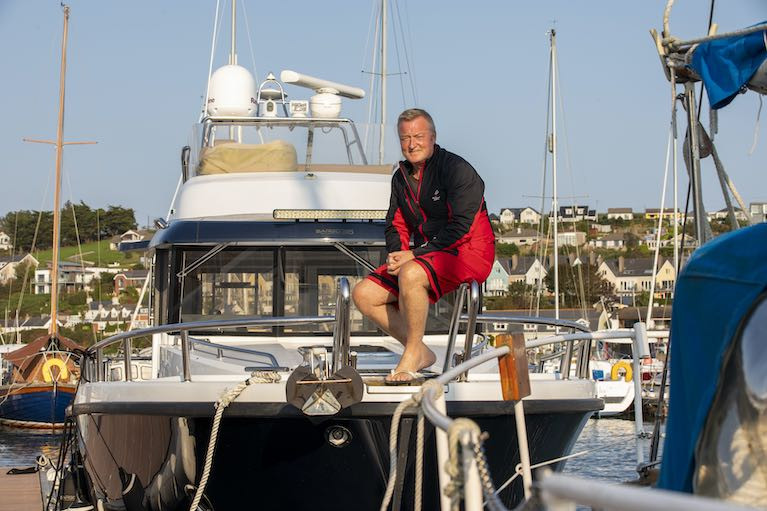Displaying items by tag: Pearse Flynn
Offshore Wind Farms - What Does Public Consultation Really Mean?
The photomontage published in Afloat a week ago of 60 'supersize' wind turbines planned for Dublin Bay should raise substantial debate about the impact of offshore wind farms on Irish waters and the activities in them – sailing, leisure marine, fishing and commercial.
There are so many proposals now being forward, with billions of Euros involved, in response to the Government's stated intention to drive forward wind energy, that it becomes challenging to keep track of them all. "Public consultation" is promised, but what does that exactly mean and how effective is this process?
The proposal for the Kish and Bray Banks is about six nautical miles offshore, so for many leisure mariners that might not seem to be considered as a major issue, or problem. However, the 60 turbines would be 310 metres in height - over a thousand feet - pretty substantial on the seascape.
 Dublin Array: Likely view from Dún Laoghaire towards Sandycove and out towards the Kish Bank.
Dublin Array: Likely view from Dún Laoghaire towards Sandycove and out towards the Kish Bank.
The Arklow Bank Wind Park, as it's called, is also six miles offshore. Phase 2, for 76 turbines, is under public consultation and there is a lease area 27 km long and 2.5 km wide.
The developers of these and other projects have initiated public consultation. Projects are promoted as essential for energy and environmental purposes, but there is less, if any, reference in publicity to the profits.
So what does "consultation" mean?
Too often, as a journalist, it seems to me that "consultation" is seen by developers as a necessary process to be gone through, indicating that the public has been consulted. But with what effect? Is debate sufficiently focused on the effects on leisure, sailing, fishing, commercial, marine life, species? Is there not a need, in response to the proliferation of proposals, for more widespread debate and more intensive focus, practical discussion and a wider, co-operative approach and not only through the State process administered and controlled by officialdom >
In this regard, I have been talking to the man who has bought Crosshaven Boatyard in Cork Harbour to set up a business "to service the future needs of offshore wind farms." Pearse Flynn of Green Rebel Marine has set up a "strategic partnership" with Fisheries Liaisons Ltd., to develop communication "with the wider marine and fishing community as development of offshore wind farms picks up pace." It seems an interesting approach to "consultation."
Listen to him on the Podcast below.
























































